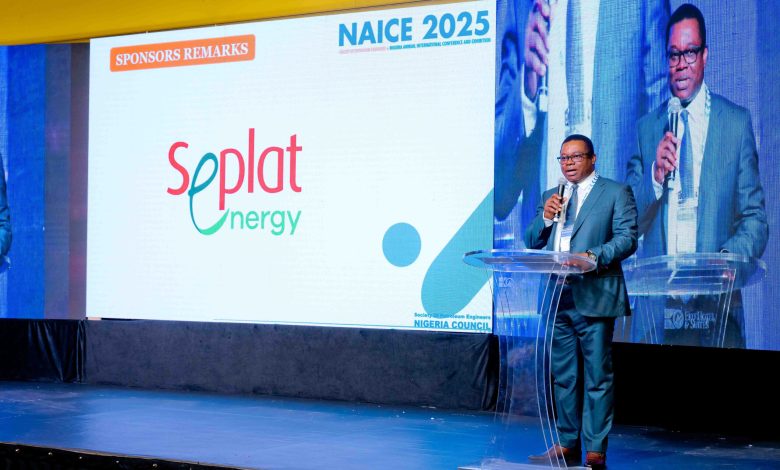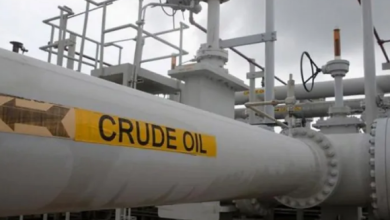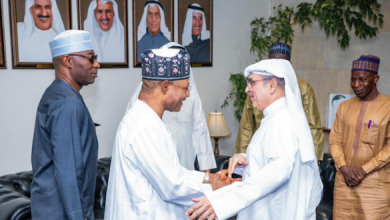Business
Nigeria needs sustainable, secure energy to reshape future – Seplat Energy

Seplat Energy Plc is calling for a just and inclusive energy transition in Nigeria, emphasizing the need for a sustainable and secure energy system that benefits all citizens.
According to Mr. Roger Brown, Chief Executive Officer of Seplat Energy, the country’s energy crisis affects economic opportunity, human development, and climate resilience, not just infrastructure.
Speaking at the 2025 Society of Petroleum Engineers (SPE) Nigeria Annual International Conference and Exhibition (NAICE) in Lagos, Brown highlighted the importance of inclusive energy access in shaping Nigeria’s energy future.
He noted that despite abundant resources and talent, many Nigerians still lack reliable electricity and use polluting fuels for cooking and transport.
Brown emphasized that Nigeria needs regulations that attract investment, support innovation, and place people at the heart of the energy system. He also urged stakeholders to work together to ensure the energy transition is not only green but also just and inclusive, providing reliable, affordable, and equitable energy access for everyone
Mr highlighted the importance of inclusive energy access in shaping Nigeria’s energy future.
Brown, represented by Mr Samson Ezugworie, the company’s Chief Operating Officer, addressed the conference’s theme: “Building a Sustainable Energy Future.”
The theme focuses on technology, supply chain, human resources, and policy as tools for building a sustainable energy future.
He said the conference brought together stakeholders across the energy value chain, including regulators, operators, financiers, interest groups, and the media.
“We are living through a profound global transition — a shift from fossil fuels to cleaner, more inclusive energy systems.
“For Nigeria, this is more than climate action; it is an economic opportunity to build a sustainable, secure, and accessible energy future,” Brown.
He noted that Nigeria’s energy crisis affects economic opportunity, human development, and climate resilience — not just infrastructure.
Brown added that, in spite of abundant resources and talent, many Nigerians still lack reliable electricity and use polluting fuels for cooking and transport.
“Nigeria is at a crossroads — needing to meet growing energy demand while also answering global calls for a low-carbon future.
“To build a sustainable energy system, we must treat it as a transformation — not a single issue,” he said.
He said technology is key to transforming energy delivery, from off-grid solar and smart grids to clean cooking solutions and digital infrastructure.
However, he stressed that such technologies must be accessible, scalable, and adapted to local needs.
He described supply chains as “invisible threads” that turn innovation into impact and called for stronger logistics from gas pipelines to solar panel delivery.
“Human capital remains Nigeria’s greatest energy asset.
“We must invest in engineers, entrepreneurs, and communities. Without training and inclusion, our energy goals remain out of reach,” he said.
He also emphasised the importance of an enabling policy environment for energy transformation.
“No energy shift succeeds without bold, consistent, and forward-looking policies,” Brown stated.
He said Nigeria needs regulations that attract investment, support innovation, and place people at the heart of the energy system.
While acknowledging progress, Brown warned that momentum is still uneven and many communities remain underserved.
He urged stakeholders to use the conference to build stronger alignment across sectors and disciplines.
He said, “This is our chance to ask hard but vital questions.
“How do we ensure our energy transition is not only green but also just and inclusive?
“How do we make energy access reliable, affordable, and equitable for everyone?
“How do we build systems that serve both rural villages and urban cities, industries and households?”
He said by calling for clearer strategy and stronger collaboration towards a more sustainable and fair energy future.
The 2025 SPE NAICE hosted over 80 exhibitors and featured multiple technical sessions.
Discussions covered gas monetisation, infrastructure optimisation, pipeline reliability, and digital transformation.
The event also spotlighted national priorities such as asset divestment, local content development, and environmental stewardship.



